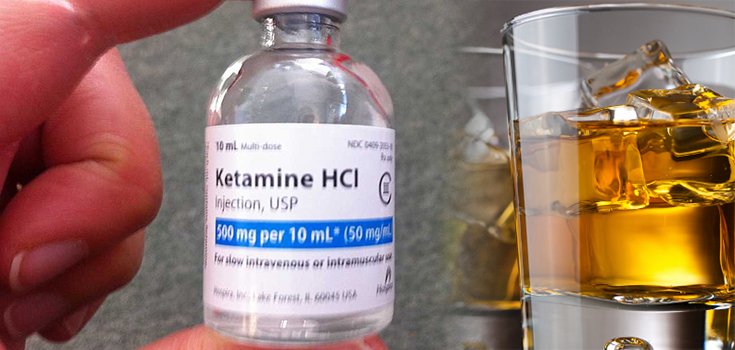Researchers to Trial Ketamine as a Treatment for Alcoholism

Researchers at the University of Exeter in the United Kingdom are looking for volunteers to be injected with ketamine to evaluate whether or not it can be used as a treatment for alcoholism.
The common party drug has already been involved in research on pain and depression and it has been found that it is has helped both issues. The project, entitled KARE (Ketamine for Reduction of Alcoholic Relapse), is funded by the Medical Research Council (MRC) and Innovate UK.
The University of Exeter is looking to recruit 96 volunteers who will receive a small dose of ketamine once per week for three weeks. A control group will be receiving saline placebos during their injections to measure the difference between the groups. They will also be required to take part in seven 90 minute sessions of psychological therapy over the course of the study. As part of the research, they will also be wearing an ankle device for six months which will measure their sweat levels.
Researchers at the University of Exeter have stated that ketamine has been proven to help mice produce changes in their brains which make it easier to learn new things in the short-term. They hope that this might be used as an improvement in psychotherapy in general, as well as in the treatment of alcoholism.
A pilot study at Exeter found that the use of ketamine in the treatment of alcoholism reduced the rate of relapse within the first year from 76 percent to 34 percent.
The study, though headed at the University of Exeter will also be in collaboration with researchers at University College London and Imperial College London. They hope the multiple sites will help diversify some of the participants who will be recruited for the study.
Dr. Kathryn Adcock, head of neurosciences and mental health at the Medical Research Council, said of this recent study:
“Alcoholism can have a terrible impact on both the individual and those around them, but current treatments for alcohol dependence are associated with high relapse rates – with people often returning to drinking after only a short time of abstinence. We are constantly looking for new ways to help change this pattern and we look forward to the results of this innovative trial.”
Sources:
